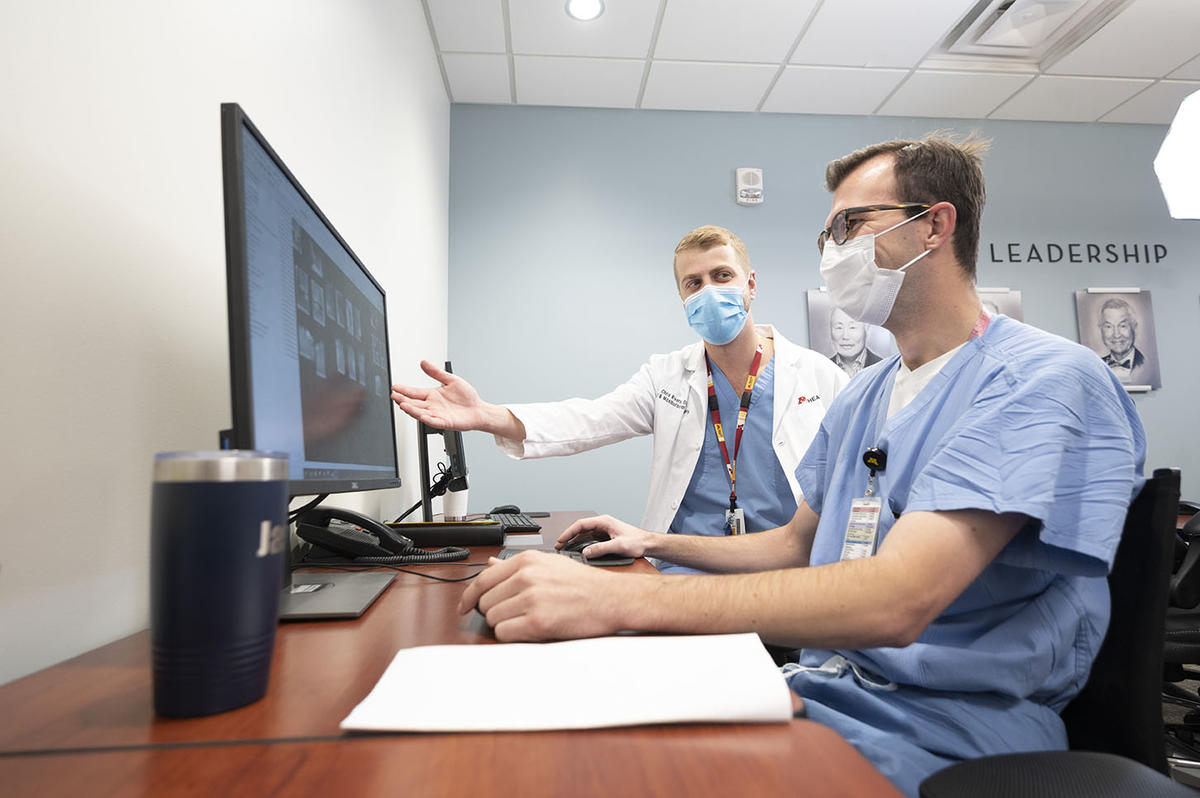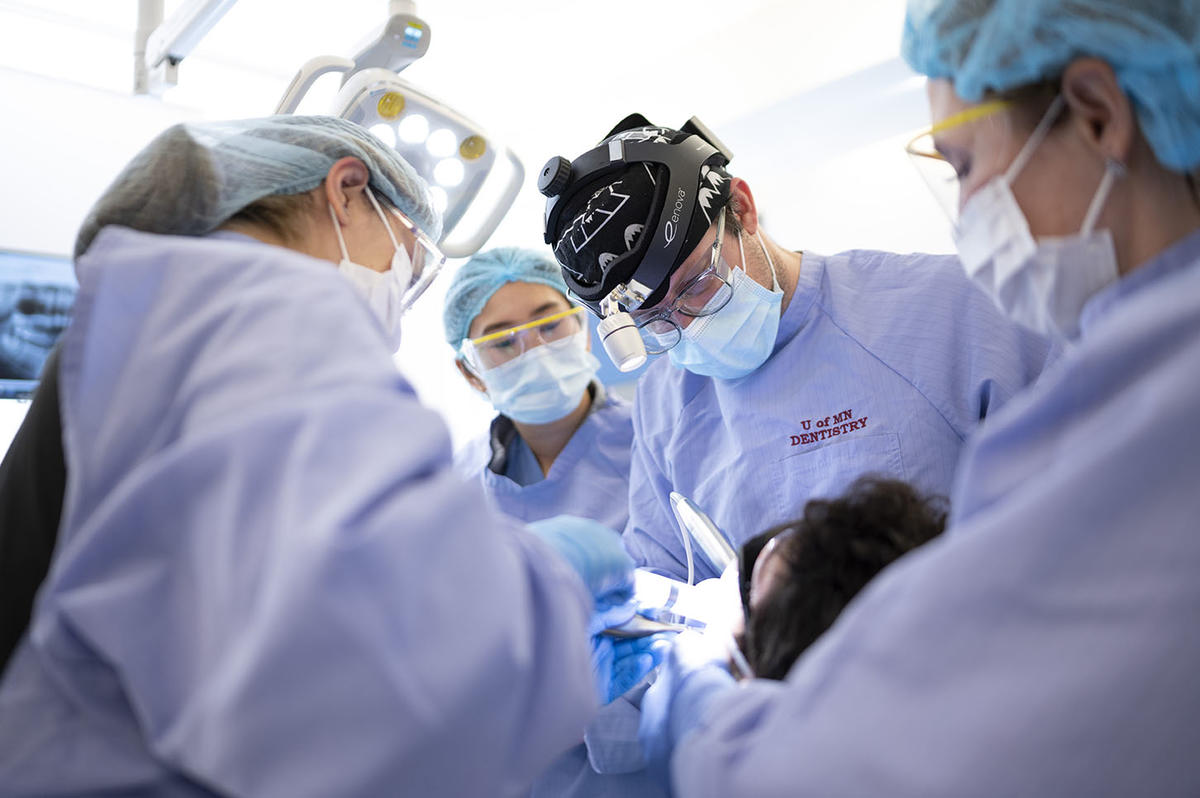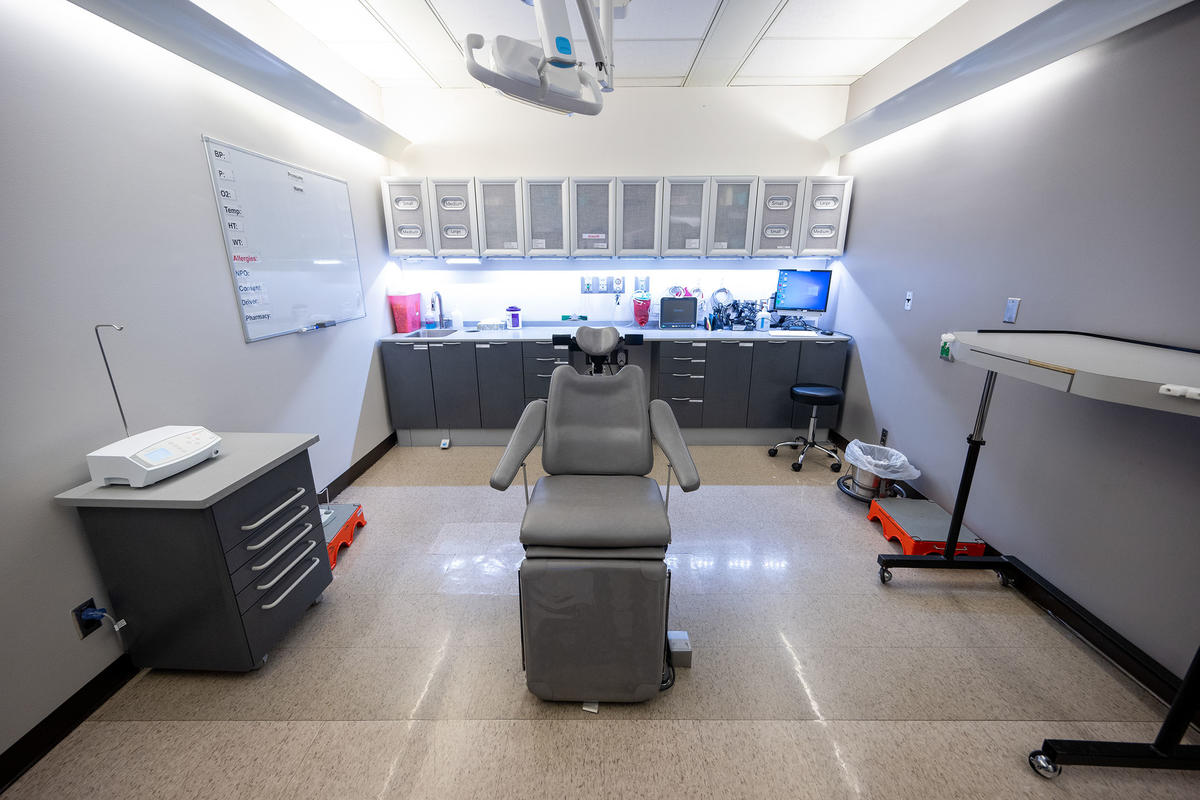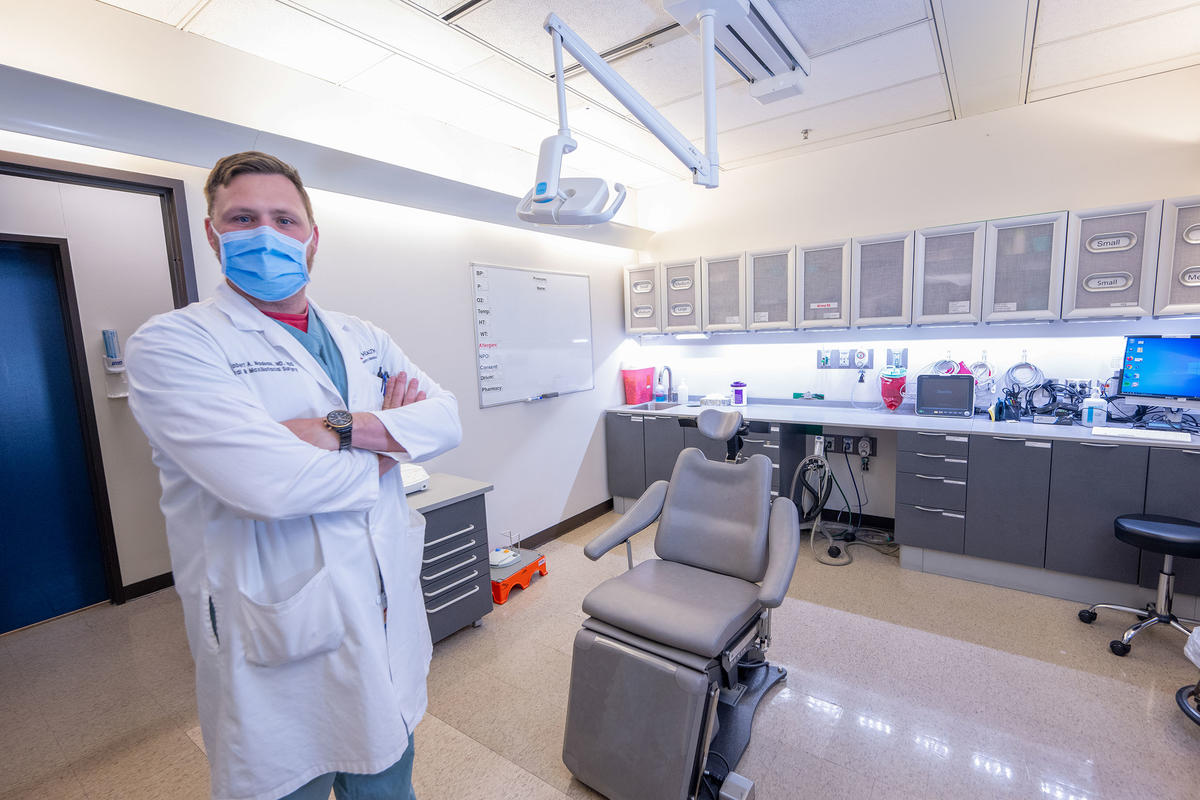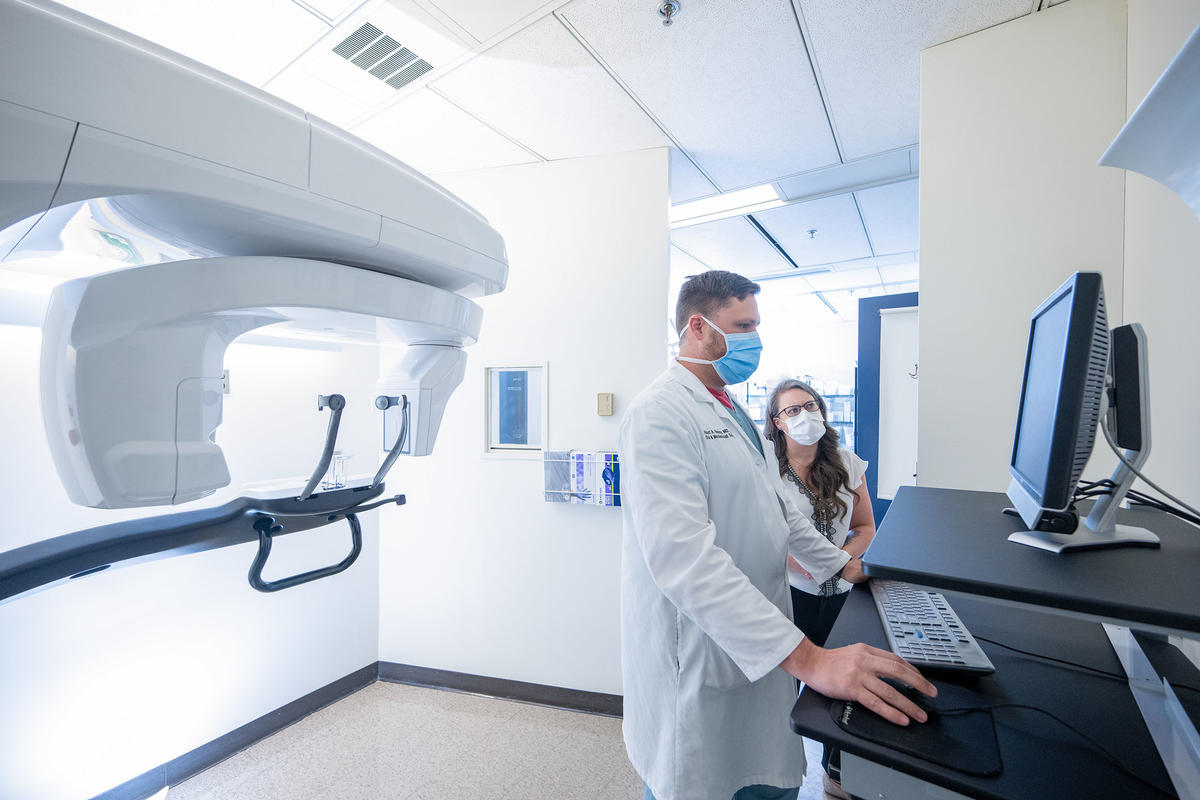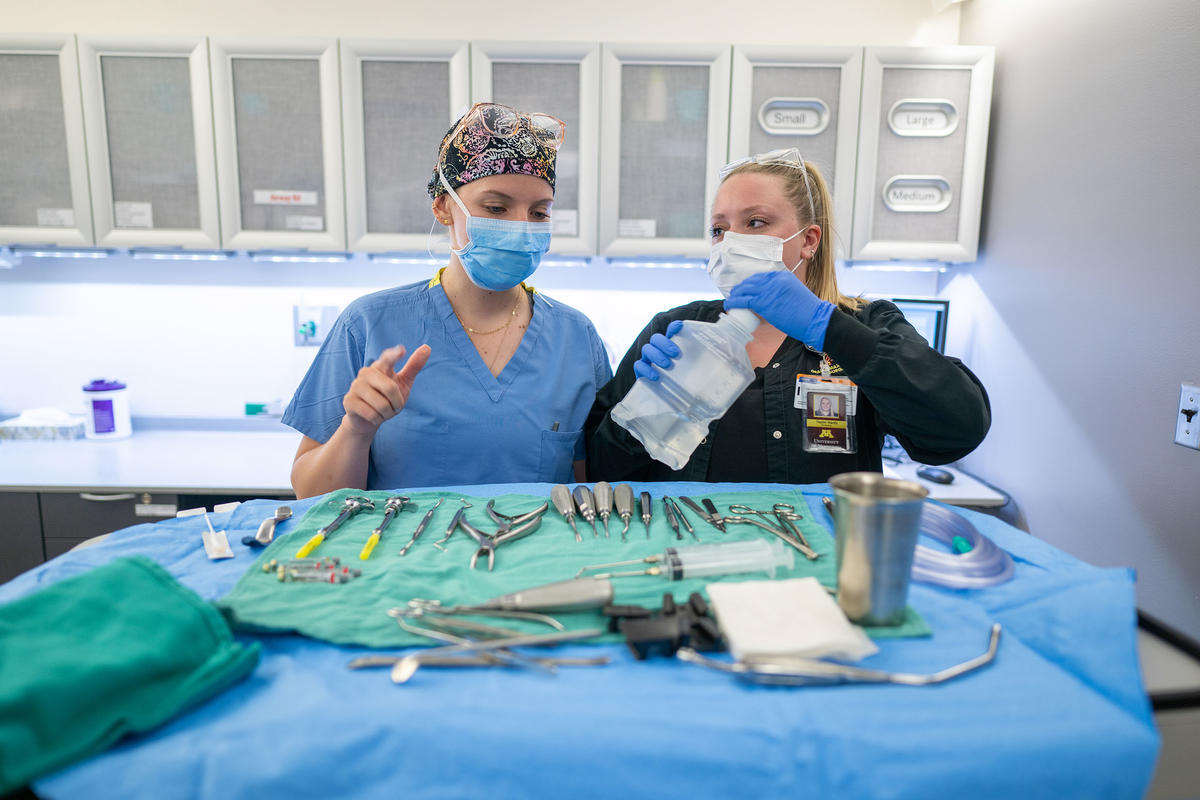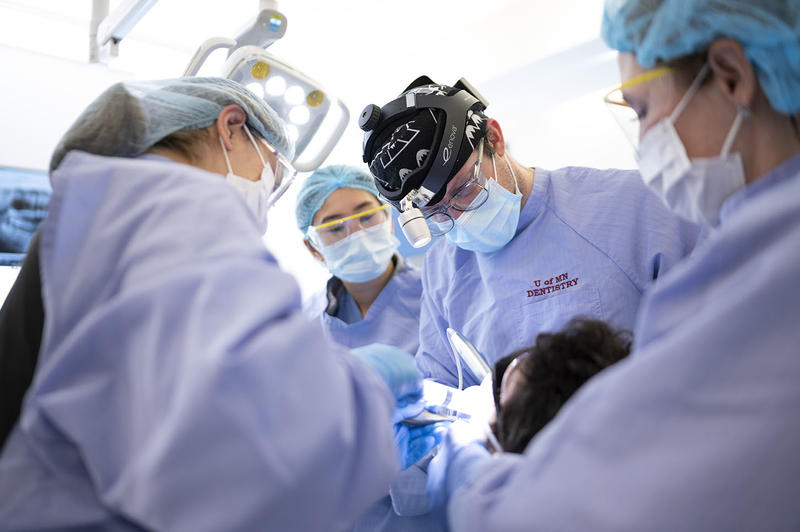
Overview
The Advanced Training Program in Oral and Maxillofacial Surgery trains individuals to be competent in all phases of the specialty. We aim to provide opportunities to collaborate with dental and medical colleagues, as well as experiences in research that enable a better appreciation for the scientific basis of the specialty.
Our graduates are well-trained in the full scope of oral and maxillofacial surgery, including didactic coursework and clinical exposure. Residents work closely with faculty at primary and affiliate hospitals and acquire the skills necessary to assume positions of increasing responsibility in medical and surgical care. The course of study is organized to allow the resident to work closely with full and part-time faculty at primary and affiliate hospitals.
Over 130 oral and maxillofacial surgeons have successfully completed the requirements for certification in the specialty since 1946. Our alumni are prominent and recognized professionals.
Affiliate institutions include
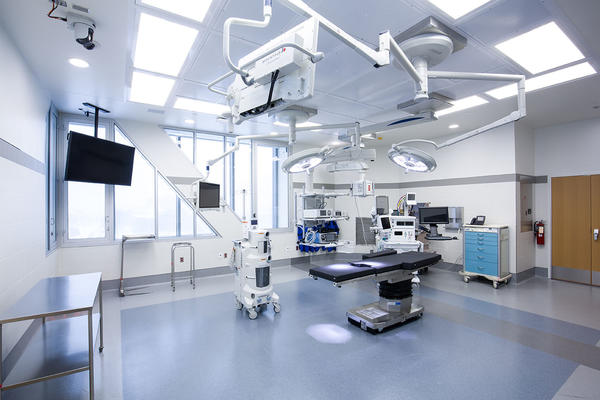
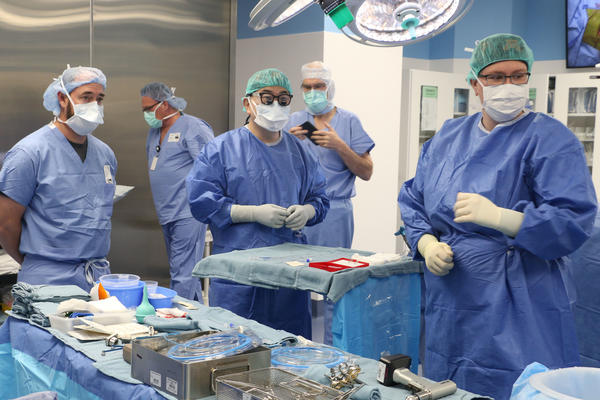
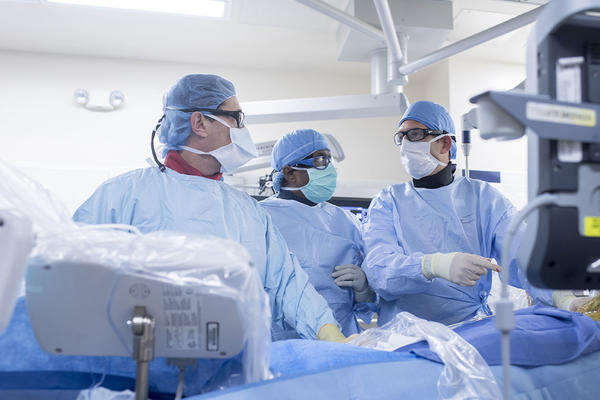
Photos courtesy of M Health Fairview.
Program at a Glance
Joining the Program
Apply
Prospective residents must apply through ADEA PASS. Our application cycle runs from May through September, for a program start date of the following July 1st. The Oral and Maxillofacial Surgery program participates in the National Matching Service (MATCH). Applicants must submit rank order lists by November (phase I) or January (phase II). Applications are submitted independently from MATCH, and prospective residents should register for MATCH by October.
Learn more about our application requirements on our ADEA PASS program page.
Program Requirements
| Subject | Description |
|---|---|
| Test Scores | ADA ADAT Scores are accepted but not required. NBDE or INBDE Scores are required. Must have passed Parts 1 and 2 of NBDE. Must submit NBDE Comprehensive Basic Science Examination. Score of 175 (60 in old scoring system) or higher is required for an interview. |
| Transcripts | Must submit unofficial undergraduate and official dental school transcripts to ADEA PASS. |
| CV/Resume | Applicants must submit their resume or CV. |
| Supplemental application | N/A |
| Dental licensing | Must be eligible for a Minnesota full dental license. |
| Degree | Must have received a DMD or DDS degree from a CODA accredited US or Canadian dental school. |
| Additional requirements | $35 supplemental processing fee. |
| International applicants | TN or F1 Visas are sponsored. Applicants must have graduated from a CODA-accredited dental school in the US or Canada. |
Curriculum
Residents receive a standardized curriculum of the fundamental concepts of oral and maxillofacial surgery and medicine over a minimum four-year period. Courses include basic and advanced concepts of surgery and medicine on the topics of orthognathic, pharmacology/microbiology, dental implants, pathology associated with TMJ, trauma, medicine/physiology, surgical anatomy, practice management, cosmetic surgery, oncology/reconstruction, cleft/craniofacial and dentoalveolar.
Residents are also exposed to clinical experiences in order to prepare them to be excellent oral and maxillofacial surgeons.
Core topics include:
- Orthognathic
- Pharmacology/Microbiology
- Dental Implants
- Pathology Associated with the TMJ
- Trauma
- Medicine/Physiology
- Surgical Anatomy
- Practice Management
- Cosmetic Surgery
- Oncology/Reconstruction
- Cleft/Craniofacial
- Dentoalveolar
Oral and Maxillofacial Surgery Division Externship Information
Application Requirements
- Must be currently attending or have previously graduated from a CODA-accredited US or Canadian dental school.
- Applicant-specific required materials;
- Photo ID
- Letter of Interest
- Curriculum Vitae
- Letter of Recommendation from an Oral Surgeon
- Proof of insurance / liability coverage if applicable
- General application required materials;
- UMN Externship Application and Volunteer Agreement
- HIPAA Visitor Guidelines
- Immunization and Vaccination Attestation
- Application to the M Health Fairview OR
- You may begin this application now and enter your preferred dates for the externship or you can complete this after you have been approved for your externship and your dates are finalized.
Current UMN Resident Externship Application and Volunteer Agreement (PDF)
Non-UMN Resident Externship Application and Volunteer Agreement (PDF)
Oral and Maxillofacial Surgery Externship HIPPA Visitor Guidelines Form (PDF)
Rotation Expectations, Overview, and Requirements
We are happy that you are considering spending a week learning more about our incredibly diverse and challenging specialty. Please be advised that our externship program is on a weekly rotation and will include Monday-Friday on any given week.
Requirements for the Rotation:
- Scrubs and Dress clothes (business casual).
- Log-book; Digital or otherwise, to record what you observe and a place to write questions.
- Timeliness; being late or leaving early is disrespectful to the faculty, residents and staff.
- Appropriateness; There is a hierarchy within training programs, please recognize and understand that the mission of the faculty is to treat patients and teach residents and that is the main focus of the program. You are an observer and should expect to function as such.
- Computer; You will be required to present on a topic at our weekly didactic session. So having your laptop with you will be a necessity.
To ensure that we maintain patient care as our top priority, educate you as much as possible, and maximize the education of our other residents, we would ask that you adhere to the following instructions:
- Arrive on time on the first day. You will be assigned a resident who will be your guide for the week. You should touch base with your assigned resident about what time you should arrive every day.
- Monday morning the residents will have a discussion with you about their expectations for you when you are following them. If anything is unclear, you should clarify this with the residents.
- In general, when you are in the clinic, we will have you follow the first or second year resident so you can see what it is like to be an intern in this program.
- You are encouraged to check with the Chief Resident or attending faculty member on whether you may scrub into surgeries in the OR. We invite you to attend surgeries, but not all surgeries are conducive to an extra set of hands. We have TV screens so you can view the surgical site.
- You should follow the resident you’re assigned to/the attending faculty into the rooms in the clinic and the hospital. We do not expect you to see the patients first. Absolutely no talking while in a patient room with residents or staff.
- You are expected to attend morning rounds in the hospital. Once again, make sure to check with the residents on what time they would like you to be available.
- Find appropriate times to ask questions. You may have a lot of questions, and that is great. We welcome questions when we are not involved in direct patient care or at critical points in the procedures. Please save your questions for breaks in patient care or at the end of the day. Please avoid asking questions around non-sedated patients.
- Your responsibility is to observe and learn. If we ask you to assist, it is wonderful if you can help out if you are comfortable with this. Often, we will have our trained surgical assistants helping us to keep our clinic flow efficient.
- The OR is a different environment than the clinic you have likely been exposed to. Please avoid touching anything unless we ask you to help. Please remember that the instruments are under the charge of the scrub tech/RN and that touching them may create challenges for them doing their job effectively.
- Attitude and etiquette, these two items will allow you to get much more out of your rotation
- Keep your phone on silent and away from sight. If you are not interested in clinic and are spending time on your phone you may be asked to leave and not return.
- Showing interest in the patients and procedures is a must. If you do not want to watch or participate then do not sign up for this externship. We cannot provide patient details to you. It is your responsibility to learn about the patient and procedures being performed. Your assigned resident can point you to appropriate resources.
Additional Information
The outline of a typical week is as follows:
Monday: Please report to the resident room at 7:30 AM and introduce yourself. This is a clinic day, mostly procedures performed under sedation and some consults
Tuesday: Clinic and OR day, we alternate Tuesdays in the OR and when not there we have a busy clinic load of patients.
Wednesday: Clinic, Cleft and OR; typically this is the busiest OR day. It is also the day that the Cleft lip and palate clinic is held. You will probably be in the OR but if not you are encouraged to attend the Cleft lip and palate clinic.
Thursday: Clinic in the morning is procedure and post-op heavy. In the afternoon the residents have their didactic session. This is an important day and you will be required to present on a subject of your choosing. This lecture should be 15 minutes long and presented in a power-point format.
Friday: Clinic day; depending on the day this may be quite busy with Dr. Swift patients. His patients bring a unique set of problems and surgical issues. With his blessing you may participate in his clinic.
Please note that you are responsible for making your own overnight accommodations and arranging your own transportation.
If your application is approved, a background check is required prior to your start date.
Scheduling
Contact Haley Busch to schedule an externship.
Oral and Maxillofacial Surgery Division Observership Information
Application Requirements
- Must be currently attending or have previously graduated from a CODA-accredited US or Canadian dental school.
- Applicant-specific required materials as listed;
- Photo ID
- Letter of Interest
- Curriculum Vitae
- Letter of Recommendation from an Oral Surgeon
- Proof of insurance / liability coverage if applicable
- General application required materials;
- UMN Observership Application and Volunteer Agreement
- HIPAA Visitor Guidelines
- Immunization and Vaccination Attestation
- Application to the M Health Fairview OR (only required if you intend to observe on an OR day)
- You may begin this application now and enter your preferred dates for the externship or you can complete this after you have been approved for your externship and your dates are finalized.
Observership Application and Observation Agreement (PDF)
Oral and Maxillofacial Surgery HIPPA Visitor Guidelines Form (PDF)
Observation Expectations, Overview, and Requirements
We are happy that you are considering spending a day learning more about our incredibly diverse and challenging specialty. Please be advised that our observership program consists of 1-2 days on Monday-Friday. To ensure that we maintain patient care as our top priority, educate you as much as possible, and maximize the education of our other residents, we would ask that you adhere to the following instructions:
- Arrive on time on the first day: Please report to the resident room at 7:30 AM and introduce yourself. You will be assigned a resident who will be your guide for the observership.
- For 2 day Observerships, you should touch base with your assigned resident about what time to arrive the next day.
- Before clinic begins on your first day, the residents will have a discussion with you about their expectations for you when you are following them. If anything is unclear, you should clarify this with the residents.
- In general, when you are in the clinic, we will have you follow the first or second year resident so you can see what it is like to be an intern in this program.
- We invite you to attend scheduled surgeries, but not all surgeries are conducive to observers. We have TV screens so you can view the surgical site.
- You should follow either the attending faculty or your assigned resident into the rooms in the clinic and the hospital. We do not expect you to see the patients first. Absolutely no talking while in a patient room with residents or staff.
- Observers may only observe patient care activities with the patient’s permission. Faculty/Residents will make the patient aware of the observer in the room.
- You are expected to attend morning rounds in the hospital. Once again, make sure to check with the residents on what time they would like you to be available.
- Find appropriate times to ask questions. You may have a lot of questions, and that is great. We welcome questions when we are not involved in direct patient care or at critical points in the procedures. Please save your questions for breaks in patient care or at the end of the day. Please avoid asking questions around patients who are awake.
- Your responsibility is to observe and learn.
- The OR is a different environment than the clinic you have likely been exposed to. Please avoid touching anything. Please remember that the instruments are under the charge of the scrub tech/RN and that touching them may create challenges for them doing their job effectively.
- Attitude and etiquette will allow you to get much more out of your rotation.
- Keep your phone on silent and away from sight. If you are not interested in clinic and are spending time on your phone you may be asked to leave and not return.
- Showing interest in the patients and procedures is a must. If you do not want to watch or participate then do not sign up for this Observership. We cannot provide patient details to you. It is your responsibility to learn about the patient and procedures being performed. Your assigned resident can point you to appropriate resources.
Requirements for the Observation:
- Scrubs and business casual dress clothes.
- Log-book. Digital or otherwise, to record what you observe and a place to write questions.
- Timeliness. Being late or leaving early is disrespectful to the faculty, residents and staff.
- Appropriateness. There is a hierarchy within training programs: Please understand that both the mission of the faculty and the main focus of the program is to treat patients and teach residents. You are an observer and should expect to function as such.
Additional Information
The outline of a typical week is listed below: Please keep this in mind as you choose which day(s) to apply for your Observership.
Monday: This is a clinic day, mostly procedures performed under sedation and some consults
Tuesday: Clinic and OR day, we alternate Tuesdays in the OR and when not there we have a busy clinic load of patients.
Wednesday: Clinic, Cleft and OR; typically this is the busiest OR day. It is also the day that the Cleft lip and palate clinic is held. You will probably be in the OR but if not you are encouraged to attend the Cleft lip and palate clinic.
Thursday: Clinic in the morning is procedure and post-op heavy. In the afternoon the residents have their didactic session. This is an important day and you will be required to present on a subject of your choosing. This lecture should be 15 minutes long and presented in a power-point format.
Friday: Clinic day; depending on the day this may be quite busy with Dr. Swift patients. His patients bring a unique set of problems and surgical issues. With his blessing you may participate in his clinic.
Please note that you are responsible for making your own arrangements if you require overnight accommodations and/or transportation.
If your application is approved, a background check is required prior to your start date.
Scheduling
Contact Haley Busch to schedule an Observership.
32nd Annual Daniel E. Waite Lectureship in Oral and Maxillofacial Surgery
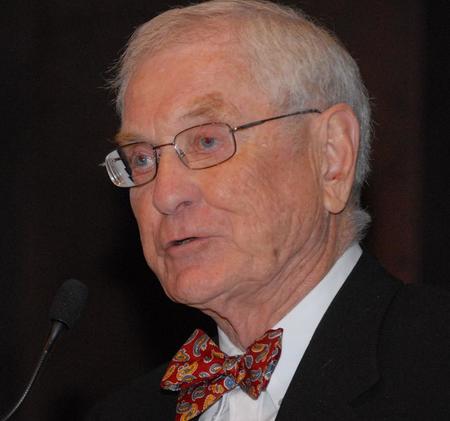
For 33 years, the Daniel E. Waite Lectureship in Oral and Maxillofacial Surgery (OMS) has provided leading practitioners, researchers, and scholars the unique opportunity to present and analyze transformational concepts. This year's lectureship takes place April 21-22.
Learn more about the 32nd Annual Daniel E. Waite Lectureship
Contact the Division of Oral and Maxillofacial Surgery
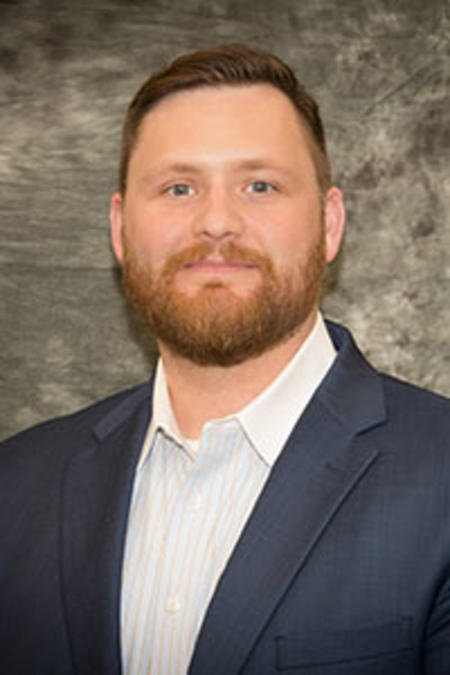
Division and Program Director
Robert A. Nadeau, DDS, MD
7-174 Moos Tower
515 Delaware St. SE
Minneapolis, MN 55455
612-301-2233
[email protected]
Executive Administrative Support
Haley Busch
Externship and observership inquiries by email
7-174 Moos Tower
515 Delaware St. SE
Minneapolis, MN 55455
612-301-2233
[email protected]
